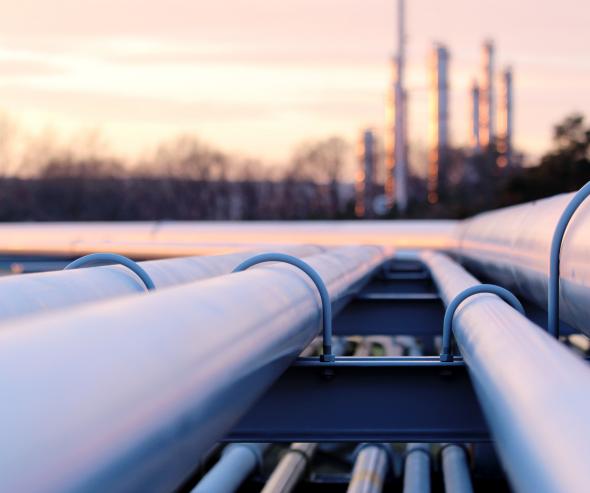The Autorité de la concurrence opens an in-depth examination into the acquisition of Société du Pipeline Méditerranée-Rhône (SPMR) by Ardian Group

On 14 September 2020, Ardian France, a French private equity and asset management company notified of its plan to acquire exclusive control of the oil pipeline company Société du Pipeline Méditerranée-Rhône (hereinafter “SPMR”).
Takeover of the French oil pipeline that supplies the southeast of France with refined oil products
Ardian is a French group that manages and advises investment funds and has interests in many companies around the world. In particular, it is active in the market for petroleum product storage services with the company Géosel-Manosque. On 14 September 2020, it notified the Autorité of its plan to acquire SPMR, a transporter of petroleum products by pipeline in France.
SPMR owns and operates the Méditerranée-Rhône pipeline, a 760 km-long pipeline network, which has supplied the depots in south-east France with refined oil products since 1968: diesel, petrol, heating oil and jet fuel[1]. Each year, SPMR transports approximately 9 million tonnes of petroleum products, covering a distance of between 6 and 335 miles. Shipments are made from the refineries and depots on the Étang de Berre and in Feyzin to the oil deposits on the Côte d’Azur, in the Rhone Valley, and the regions of Lyon and Savoie. They then supply petrol stations, distributors of heating oil and airports by lorry. The Mediterranean-Rhône Pipeline is connected to the Swiss SAPPRO pipeline, thereby allowing the supply of depots in the Geneva region.
Currently, the capital of SPMR is shared between Ardian Group (47.2%), the company Trapil[2] (32.8%), to which SPMR delegated the operation of the pipeline, and pipeline users (Esso: 14.2%; ENI: 5%; Thevenin-Ducrot: 0.8%).
The acquisition of ENI’s shares in SPMR will give Ardian control of the pipeline
The proposed transaction consists of an acquisition by Ardian Group of 5% of the shares in SPMR held by EPI. For the first time since its creation in 1968, this will result in the majority of the share capital of SPMR – and, consequently, the infrastructure – being “controlled”[3], within the meaning of the law of concentrations, by a specific operator: Ardian Group.
As part of the examination of the case and after initial consultation with market stakeholders, the Autorité considered that the transaction warranted opening an in-depth examination (Phase 2).
Risks of price increases and discriminatory practices that justify the opening of an in-depth examination
In the course of the forthcoming in-depth examination, the Autorité will examine the effect of this acquisition on the competitive dynamics of the affected markets, in particular on the customers of petroleum product transport services: fees, maintenance of quality and service, etc. The Autorité will pay particular attention to the risks of price increases for the transport of petroleum products by the pipeline that the transaction could entail.
Such behaviour cannot be ruled out at the outset since, unlike most transport or energy networks, the pipeline is not subject to the control of a sector-specific regulator in France.
Furthermore, given the presence of Ardian Group in the related markets for the storage of petroleum products (Geosel-Manosque depot), the in-depth examination will also aim to determine whether there is a risk of discriminatory practices aiming to favour its own depots, to the detriment of those of its competitors.
The examination of the case will determine whether the oil pipeline constitutes critical infrastructure
During the Phase 1 examination, Ardian Group has already provided a number of points of assessment to shed light on certain aspects of the case. However, since certain risks remain, the Autorité shall examine them further in a second phase, taking into account the importance of the infrastructure for the proper functioning of the sector.
In particular, the in-depth examination will determine whether the oil pipeline constitutes essential infrastructure and whether the pipeline management must incorporate certain concerns for neutrality in order to ensure undistorted competition in the fuel sector in France.
Should remedies prove necessary to prevent harm to competition, the Autorité will hold a special consultation with stakeholders.
Provisional timetable
The applicable regulations call for merger reviews to be conducted, in principle, within 65 working days from the start of Phase 2, although this period may be extended if necessary.
The opening of a Phase 2 examination prejudges neither the existence or otherwise of anticompetitive effects nor the outcome of the clearance application.
[2] In July 2020, Pisto withdrew its takeover of Trapil (see press release of 24 July 2020).
[3] For the purposes of competition law, the company was not controlled since none of its shareholders were able to take strategic decisions alone and there was no shareholders’ agreement to coordinate taking such decisions.